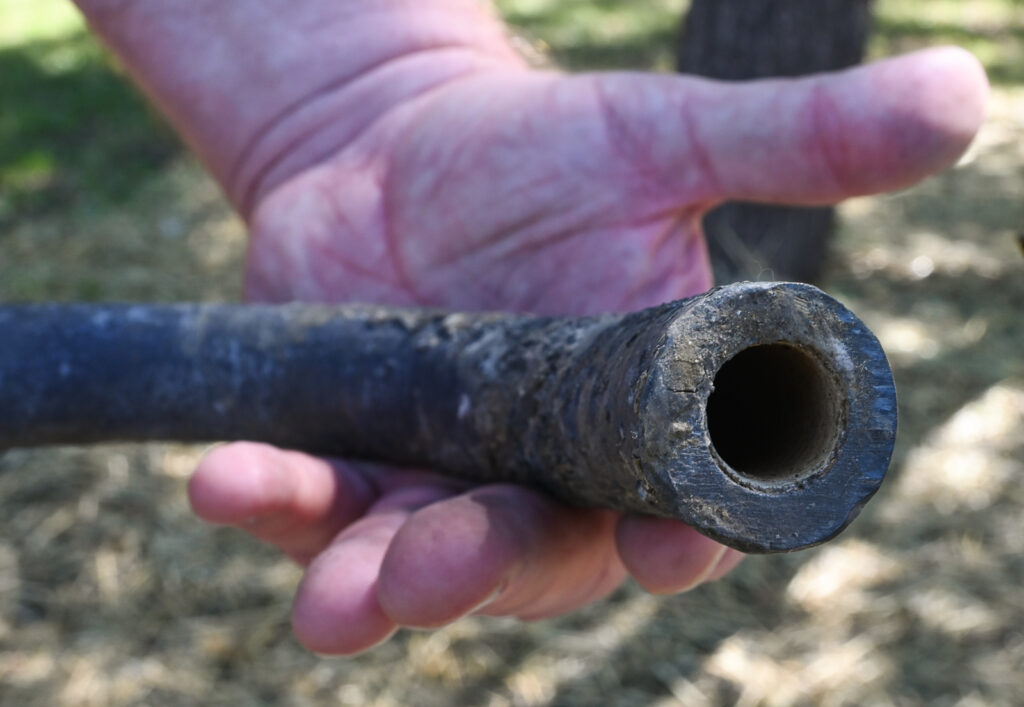EPA estimates more than 200,000 lead pipes remain in Missouri; state to get $106.4 million for water infrastructure upgrades

More than 200,000 lead service pipes carry drinking water to Missouri families, according to a new estimate from the Environmental Protection Agency.
New lead water pipes have been banned for more than 30 years. But the EPA estimates that 9.2 million American households still get their water through aging lead pipes.
Just over 2% of those are in Missouri, ranking the state 14th in the country for its number of lead service lines. The EPA announced Tuesday that the state would get $106.4 million to update its water infrastructure through the Bipartisan Infrastructure Law.
Over the next 20 years, the EPA estimates the U.S. will need $625 billion to update water infrastructure.
The EPA’s regional administrator, Meghan McCollister, said in a news release that the funds would go to “ensure that Missourians have access to clean drinking water.”
“Missouri’s investments through this fund will aid in securing needed resources to address critical infrastructure needs, threats to drinking water systems such as lead pipes, and emerging contaminants such as (forever chemicals).”
The funding allotment prioritized states according to need, something that the Natural Resources Defense Council applauded. The environmental organization published a report last year saying the states that most needed funds to replace lead service lines were getting shortchanged.
“EPA’s changes will ensure a fairer and more equitable distribution of funding dollars to replace the nation’s millions of lead pipes,” said Cyndi Roper, one of the authors of last year’s analysis. “It’s good news for communities with the highest need that will now have access to more funding to get lead pipes out of the ground.”
The EPA banned new lead service lines — the pipes that carry water from water mains into people’s homes — in 1986 in an effort to combat lead poisoning.
Lead is a neurotoxin that, even at low levels, can harm children’s developing brains. Exposure to lead through water accounts for 20% of a child’s overall exposure, on average. For fetuses and formula-fed infants, leaded water is the No. 1 source of exposure.
President Joe Biden’s administration has pledged to remove the country’s lead service lines. But for now, little is known about where they are.
The EPA’s new estimates are projections based on a survey that water utilities filled out in 2021. But not every utility was required to fill out the survey. And some that did respond reported not knowing what their service lines are made of.
The EPA estimated Missouri has 202,112 lead service lines while the NRDC estimated in 2021 that the state had more than 330,000.
Water utilities treat their water to be non-corrosive so that lead won’t leach from the service line into people’s drinking water.
But a change in the water chemistry or construction that shakes up a pipe can cause it to start leaching the toxin into drinking water.
That’s what happened in Flint, Michigan, the most prominent case of lead-contaminated water in recent years.
But the issue isn’t unique to that high-profile situation. A pediatrician who helped uncover the Flint water crisis said it wasn’t the first, worst or last.
Something similar happened in Trenton, Mo., where the water utility switched chemicals used to disinfect the water and the lead levels spiked. Trenton, like many other water utilities, doesn’t know where its lead service lines are.
Miss Clipping Out Stories to Save for Later?
Click the Purchase Story button below to order a print of this story. We will print it for you on matte photo paper to keep forever.

